Home>Articles>How Long Does Hard Boiled Eggs Last In The Refrigerator
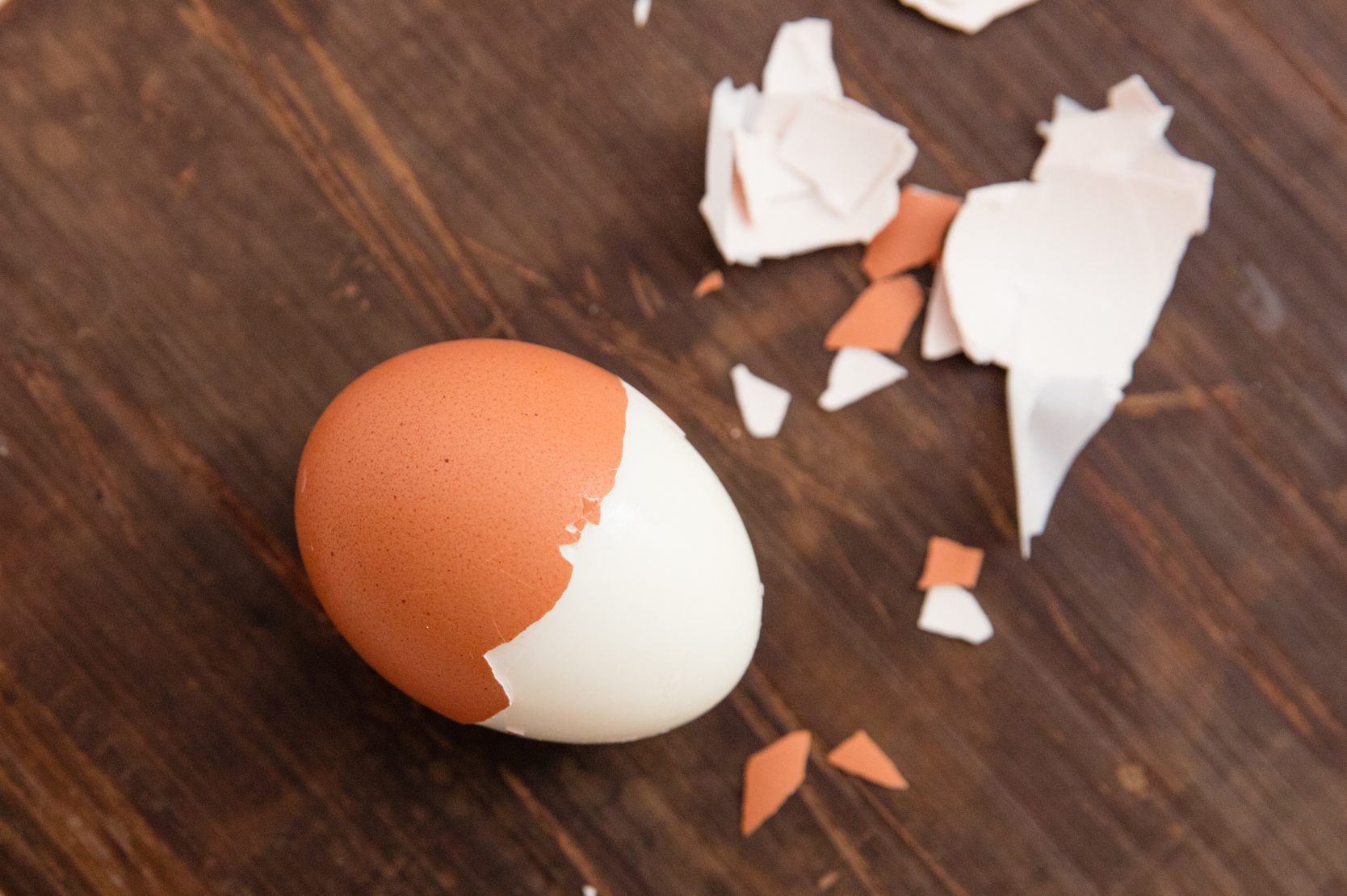

Articles
How Long Does Hard Boiled Eggs Last In The Refrigerator
Modified: February 26, 2024
Discover how long hard boiled eggs can last in the refrigerator with this informative article. Get tips and guidelines for preserving the freshness of your eggs and avoiding food waste.
(Many of the links in this article redirect to a specific reviewed product. Your purchase of these products through affiliate links helps to generate commission for Storables.com, at no extra cost. Learn more)
Introduction
Hard boiled eggs are a versatile and nutritious food option that can be enjoyed in a variety of ways. Whether you like to eat them as a quick and easy snack, use them to make deviled eggs, or add them to salads and sandwiches, it’s important to know how long they can be safely stored in the refrigerator.
The shelf life of hard boiled eggs can vary depending on a few factors, including how they were cooked, how they are stored, and how fresh they were to begin with. In this article, we will explore these factors and provide you with useful information on how to properly store and maximize the shelf life of hard boiled eggs.
Understanding the factors that affect the shelf life of hard boiled eggs is essential for ensuring their safety and quality. When eggs are cooked, their protective shell is removed, making them more susceptible to bacteria and spoilage. Additionally, the process of boiling eggs causes changes in their composition, making them more prone to spoilage as well.
One of the most crucial factors is the freshness of the eggs before boiling. Older eggs tend to have thinner shells, which can increase the risk of bacteria entering and contaminating the egg. Therefore, it is recommended to use fresh eggs for boiling to ensure a longer shelf life for the hard boiled eggs.
Another important consideration is the method of cooking. Properly cooked hard boiled eggs, where the yolks are fully set and firm, will have a longer shelf life compared to eggs that are undercooked or have runny centers. It’s essential to ensure that the eggs are fully cooked to prevent any potential bacterial growth.
Now that we understand the factors affecting the shelf life of hard boiled eggs, let’s dive into the normal shelf life of these popular protein-packed snacks in the refrigerator.
Key Takeaways:
- Properly stored hard boiled eggs can last in the refrigerator for about 1 week, but watch out for signs of spoilage like off odors, mold growth, and changes in texture to ensure safety.
- Follow safety precautions, including starting with fresh eggs, proper cooking and cooling, and good sanitation, to enjoy hard boiled eggs while minimizing the risk of foodborne illnesses.
Read more: How To Store Hard-Boiled Eggs
Factors Affecting the Shelf Life of Hard Boiled Eggs
The shelf life of hard boiled eggs can be influenced by various factors that impact their freshness and quality. Understanding these factors will help you determine how long you can safely store your hard boiled eggs in the refrigerator.
1. Age of the Eggs: The age of the eggs before boiling plays a significant role in their shelf life. Fresh eggs have a longer shelf life compared to older eggs. As eggs age, their shells become more porous, allowing bacteria to enter and potentially spoil the egg more quickly.
2. Cooking Method: The cooking method used for hard boiling eggs can affect their shelf life. Eggs that are cooked using the proper method, where the yolks are fully set and firm, tend to have a longer shelf life compared to eggs that are undercooked or have runny centers. Properly cooked eggs are less likely to harbor bacteria and spoilage.
3. Storage Temperature: The temperature at which the hard boiled eggs are stored in the refrigerator is crucial for maintaining their freshness. Eggs should be stored in the refrigerator at a temperature below 40 degrees Fahrenheit (4 degrees Celsius). Higher temperatures can accelerate bacterial growth and spoilage.
4. Storage Method: The way the hard boiled eggs are stored can also affect their shelf life. It is recommended to store hard boiled eggs in their shells, as this provides an additional protective layer. If the shells are removed, it is important to store the eggs in an airtight container or wrap them with plastic wrap to prevent them from drying out or absorbing odors from other foods in the refrigerator.
5. Cross-Contamination: Cross-contamination can occur when hard boiled eggs are stored or handled together with other foods that may contain bacteria. To prevent cross-contamination, it is best to store hard boiled eggs separately from raw foods, especially those that are known to carry bacteria such as meat or seafood.
By considering these factors, you can maximize the shelf life of your hard boiled eggs and ensure their safety. In the next section, we will discuss the normal shelf life of hard boiled eggs and provide tips on how to properly store them.
Normal Shelf Life of Hard Boiled Eggs
The shelf life of hard boiled eggs can vary depending on various factors, including how they are stored and their freshness before boiling. On average, properly stored hard boiled eggs can last in the refrigerator for about 1 week.
When eggs are boiled, their protective shell is removed, making them more susceptible to bacterial contamination. However, if the eggs were fresh to begin with, cooked thoroughly, and stored properly, they can still maintain their quality and remain safe to eat for several days.
It’s important to note that the quality of the hard boiled eggs may decline over time, even if they are still safe to eat. The whites may become slightly rubbery, and the yolks may become dry and crumbly. However, as long as there are no signs of spoilage, such as an off smell or mold growth, the eggs are generally still okay to consume.
If you are unsure about the freshness or safety of a hard boiled egg, you can perform a simple test: place the egg in a glass of water. If it sinks to the bottom and lays flat, it is fresh. If it stands upright or floats, it is no longer fresh and should be discarded.
To ensure the longest possible shelf life for your hard boiled eggs, it’s crucial to store them correctly. In the next section, we will discuss the proper storage methods for hard boiled eggs.
Proper Storage of Hard Boiled Eggs
To maximize the shelf life and maintain the quality of hard boiled eggs, proper storage is essential. Follow these guidelines to ensure that your hard boiled eggs stay fresh and safe to eat:
1. Refrigerate Immediately: Once the hard boiled eggs have cooled down, place them in the refrigerator promptly. Bacteria can grow rapidly at room temperature, so it’s important to cool the eggs quickly to slow down the growth of any potential bacteria.
2. Store in the Shell: If possible, store the hard boiled eggs in their shell. The shell acts as a protective barrier, preventing bacteria from entering and keeping the eggs moist. If the shells have been removed, it is recommended to store the eggs in an airtight container to maintain their freshness.
3. Use a Storage Container: If you prefer to store the hard boiled eggs without their shells, use a clean and airtight container to prevent them from drying out or absorbing odors from other foods in the refrigerator. You can also wrap each egg individually with plastic wrap for added protection.
4. Label and Date: It’s a good practice to label and date the storage container or plastic wrap to keep track of the freshness of the hard boiled eggs. This will help you use the oldest eggs first and avoid consuming eggs that have exceeded their recommended shelf life.
5. Store Away from Strong Odors: Hard boiled eggs are porous and can absorb the odors of strong-smelling foods in the refrigerator. To prevent this, store them away from pungent items like onions, garlic, or other strong-smelling foods.
6. Handle with Clean Hands: When handling hard boiled eggs, make sure your hands are clean to avoid introducing any bacteria that could contaminate the eggs.
By following these storage guidelines, you can prolong the shelf life of your hard boiled eggs and enjoy them safely and deliciously. However, it’s important to keep in mind that even with proper storage, the quality of the eggs will naturally decline over time.
In the next section, we will discuss the signs of spoiled hard boiled eggs that you should watch out for.
Hard boiled eggs can last in the refrigerator for up to 1 week if they are kept in their shells. It’s best to store them in a sealed container to maintain freshness.
Signs of Spoiled Hard Boiled Eggs
While hard boiled eggs can be safely stored in the refrigerator for a certain period, it’s important to be aware of the signs of spoilage. Consuming spoiled eggs can lead to foodborne illnesses, so it’s crucial to know when it’s time to discard them. Here are the signs to watch out for:
1. Off Odor: One of the most noticeable signs of spoiled hard boiled eggs is a strong, unpleasant odor. If the eggs have a sour or rotten smell, it indicates bacterial contamination and they should not be consumed.
2. Mold Growth: If you notice any mold on the surface of the hard boiled eggs, it’s a clear indication that they have spoiled. Mold can develop on the eggs if they have been stored for too long or if they were not properly refrigerated.
3. Slimy Texture: When hard boiled eggs spoil, the whites may develop a slimy or slippery texture. This sliminess is caused by bacteria growth and is a clear sign that the eggs are no longer safe to eat.
4. Discoloration: If the hard boiled eggs have any unusual coloration, such as greenish or grayish discoloration on the yolk, it signifies that they have started to spoil. The greenish coloration is a result of a chemical reaction between the sulfur and iron compounds in the egg, indicating bacterial growth.
5. Change in Texture: Spoiled hard boiled eggs may also have a mushy or runny texture. If the whites or yolks appear excessively runny or have a rubbery consistency, it’s best to discard them as they have likely gone bad.
If you notice any of these signs, it’s important to err on the side of caution and avoid consuming the spoiled hard boiled eggs. Discard them promptly to prevent any risk of foodborne illness.
Now that we have covered the signs of spoiled hard boiled eggs, let’s discuss some safety precautions and considerations when it comes to handling and consuming these popular snacks.
Read more: How To Store Peeled Hard Boiled Eggs
Safety Precautions and Considerations
When it comes to handling and consuming hard boiled eggs, it is important to follow certain safety precautions to minimize the risk of foodborne illnesses. Here are some key considerations to keep in mind:
1. Freshness: Start with fresh eggs when preparing hard boiled eggs. Fresh eggs have thicker shells, reducing the chances of bacteria entering and contaminating the egg. Check the expiration date on the carton before boiling the eggs.
2. Cooking and Cooling: Ensure that the hard boiled eggs are properly cooked to eliminate any harmful bacteria. Once cooked, cool them promptly by placing them in an ice bath or running them under cold water. This prevents the growth of bacteria and helps maintain the quality of the eggs.
3. Storage Time: Although hard boiled eggs can be stored in the refrigerator, they should not be kept for an extended period. The maximum recommended storage time for hard boiled eggs is around one week. After this time, the risk of spoilage and bacterial growth increases significantly.
4. Sanitation: Practice good hygiene when handling and serving hard boiled eggs. Ensure that surfaces and utensils are clean and sanitized to prevent cross-contamination. Wash your hands thoroughly before and after handling eggs to minimize the spread of bacteria.
5. Serving Considerations: If you are serving hard boiled eggs at a gathering or potluck, keep them refrigerated until ready to serve. Place them on ice or in a tray lined with ice to maintain a cool temperature and reduce the risk of bacterial growth.
6. Allergies and Dietary Restrictions: Keep in mind that hard boiled eggs are a common allergen. If you are serving them to others, make sure to ask about any allergies or dietary restrictions. Label the eggs properly to inform people of their contents and potential allergens.
7. Use-by Dates: Pay attention to the use-by dates on packaged hard boiled eggs. If you purchase pre-packaged hard boiled eggs, be sure to consume them before the expiration date to ensure freshness and safety.
By following these safety precautions and considerations, you can enjoy hard boiled eggs while minimizing the risk of foodborne illnesses. It’s important to prioritize food safety and make informed decisions when handling and consuming these protein-packed snacks.
Now, let’s wrap up our discussion on the shelf life and storage of hard boiled eggs.
Conclusion
Hard boiled eggs can be a nutritious and convenient food option, but it’s important to understand their shelf life and proper storage to ensure safety and maintain quality. By considering factors such as egg freshness, cooking method, storage temperature, and storage method, you can maximize the shelf life of hard boiled eggs.
The normal shelf life of hard boiled eggs in the refrigerator is approximately 1 week. However, it’s crucial to pay attention to signs of spoilage, including off odors, mold growth, sliminess, discoloration, and changes in texture. If any of these signs are present, it is advisable to discard the eggs to prevent the risk of foodborne illnesses.
To ensure proper storage, promptly refrigerate hard boiled eggs and store them in their shells, if possible. If the shells are removed, place the eggs in an airtight container. Remember to label and date the container to keep track of their freshness. Store the eggs away from strong-smelling foods to prevent absorption of odors.
Adhering to safety precautions, including starting with fresh eggs, properly cooking and cooling the eggs, practicing good sanitation, and being mindful of allergies and dietary restrictions, will further enhance the safety and enjoyment of hard boiled eggs.
Ultimately, by understanding the shelf life and proper storage of hard boiled eggs and following these guidelines, you can continue to savor this versatile food while minimizing the risk of spoilage and foodborne illnesses.
So go ahead, prepare some delicious hard boiled eggs, store them correctly, and enjoy their protein-rich goodness with peace of mind!
Frequently Asked Questions about How Long Does Hard Boiled Eggs Last In The Refrigerator
Was this page helpful?
At Storables.com, we guarantee accurate and reliable information. Our content, validated by Expert Board Contributors, is crafted following stringent Editorial Policies. We're committed to providing you with well-researched, expert-backed insights for all your informational needs.

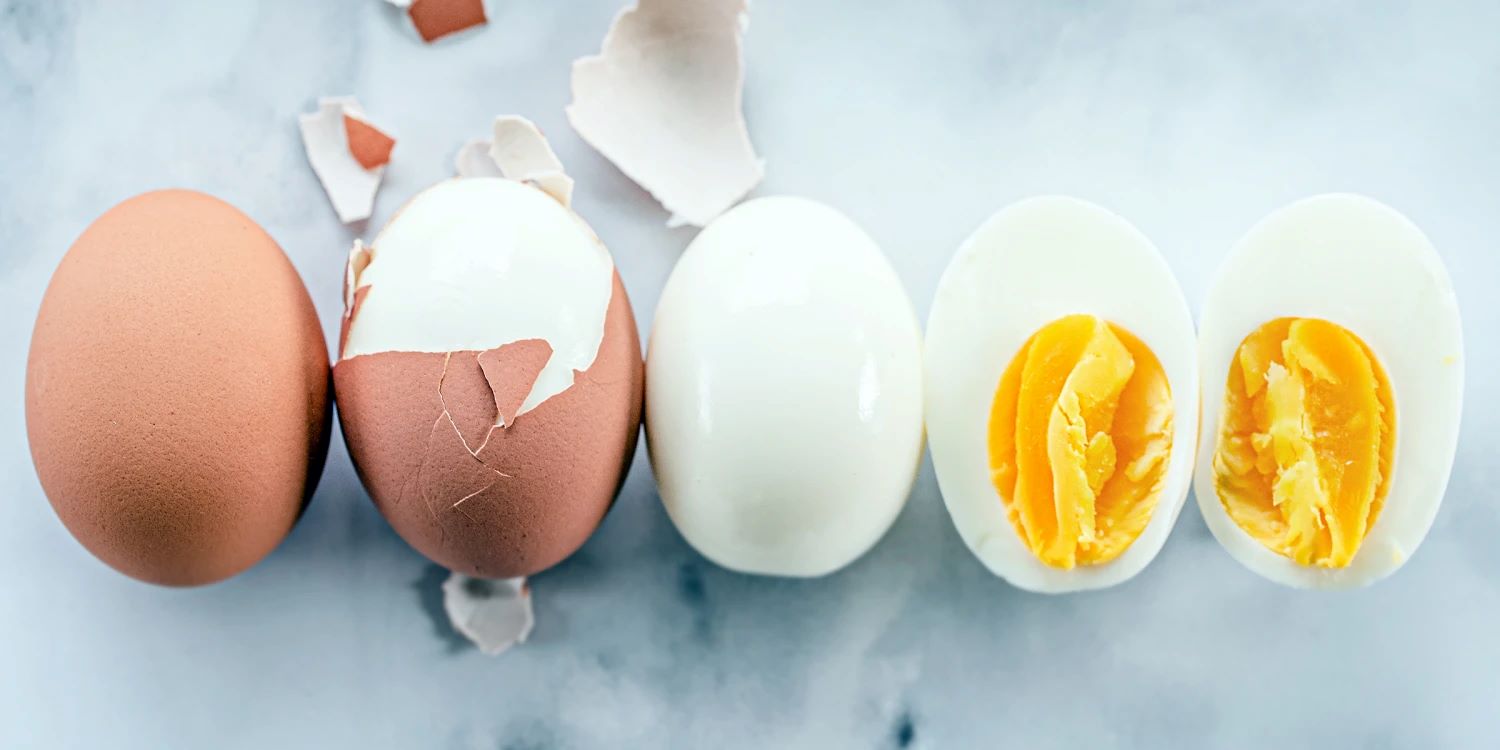
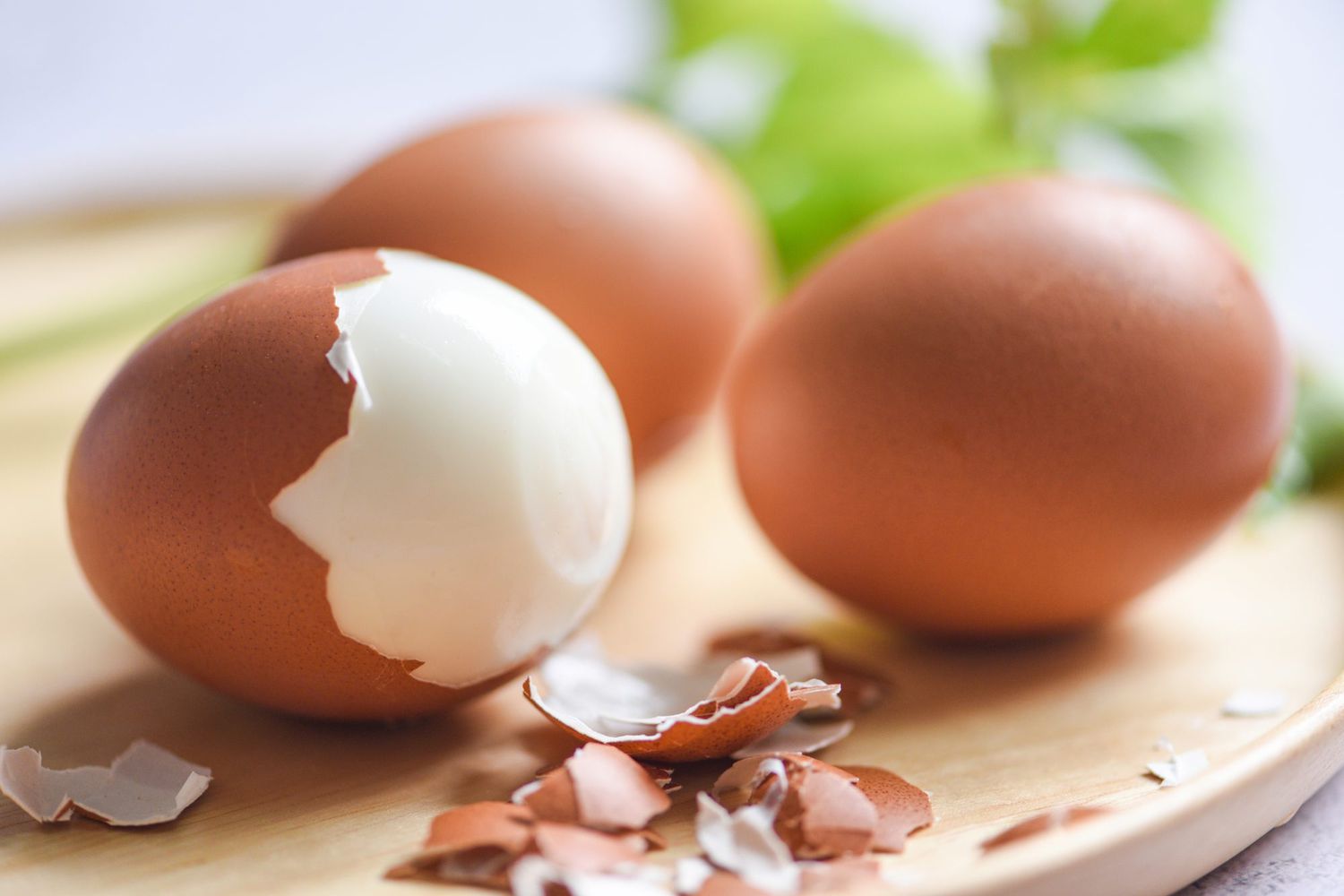
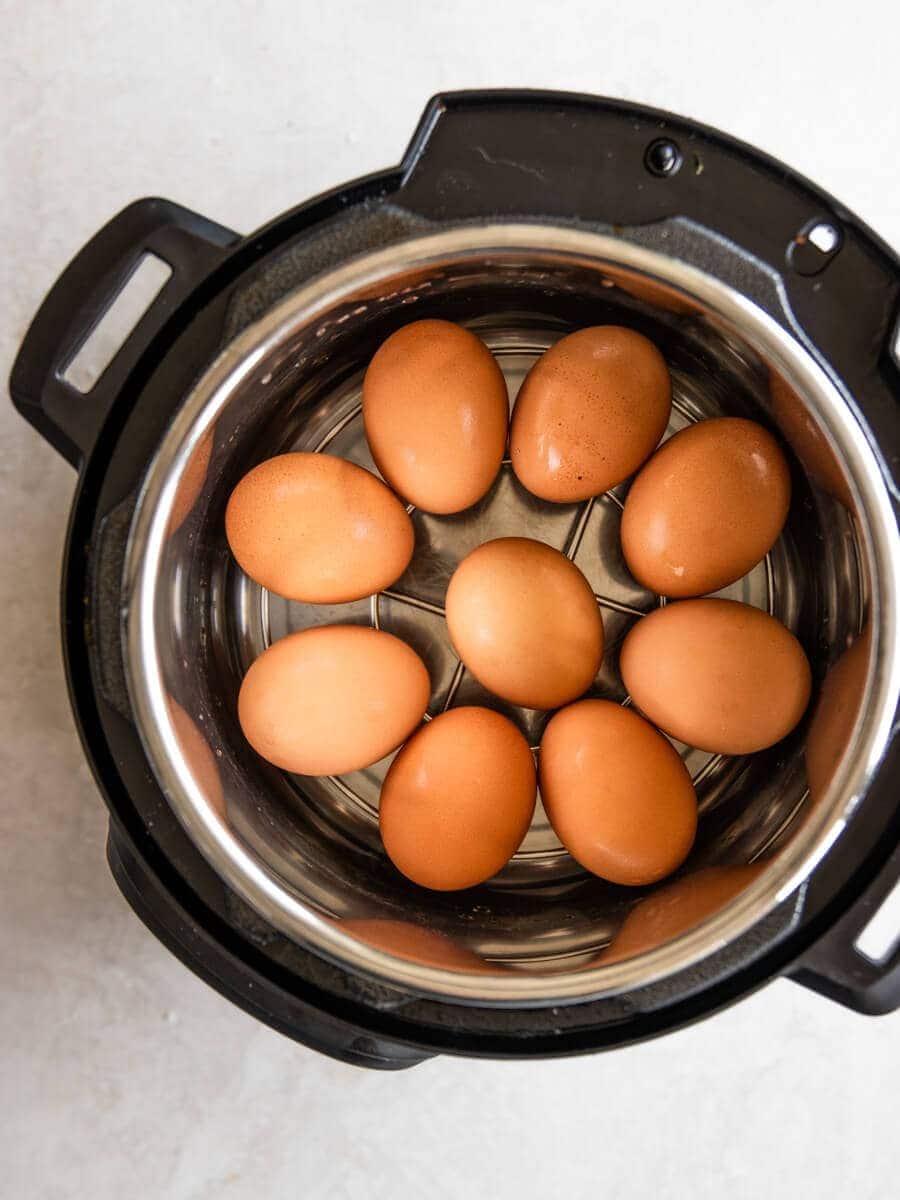
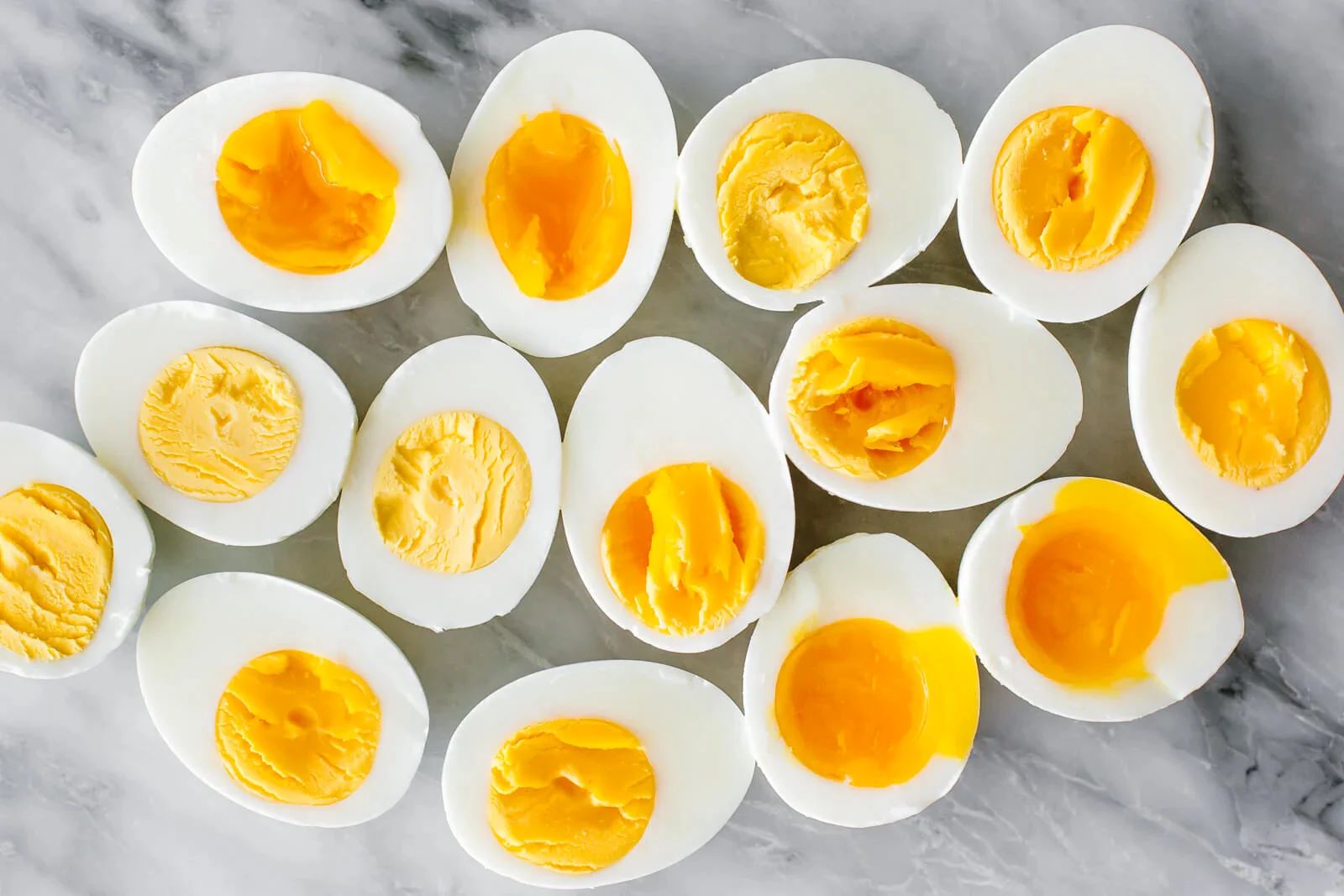



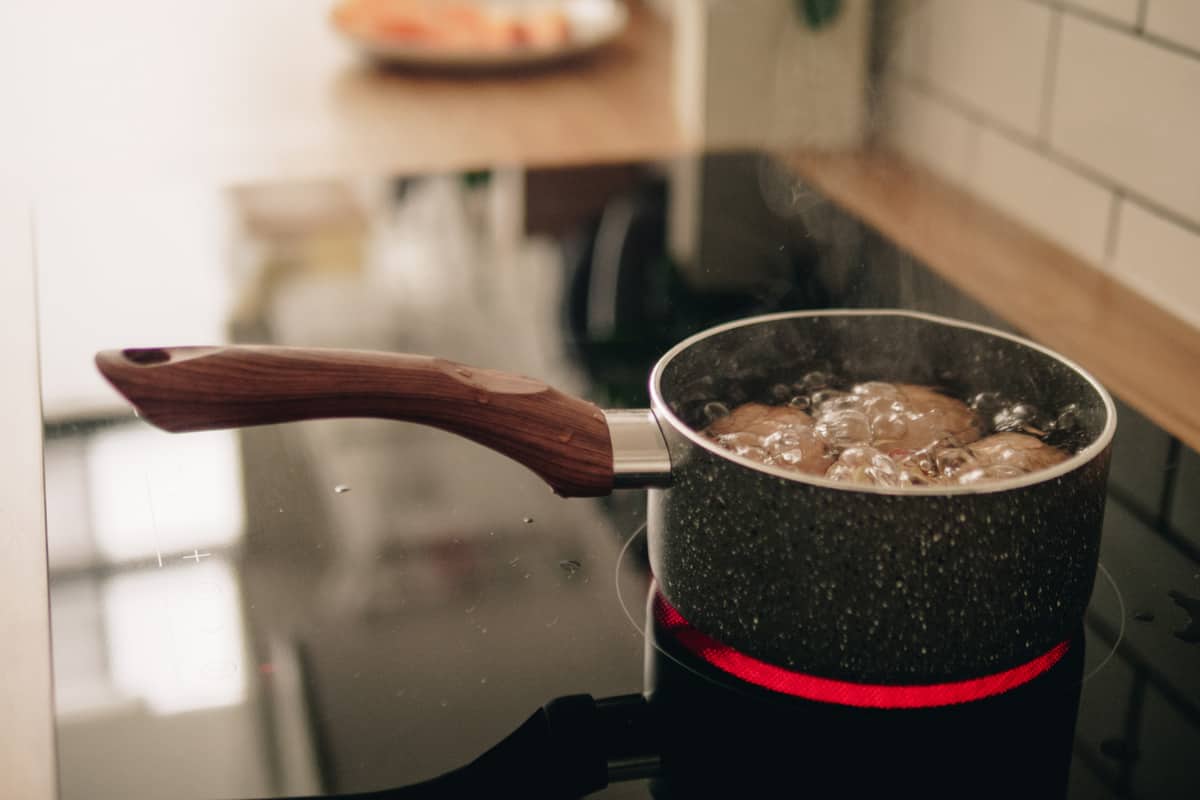
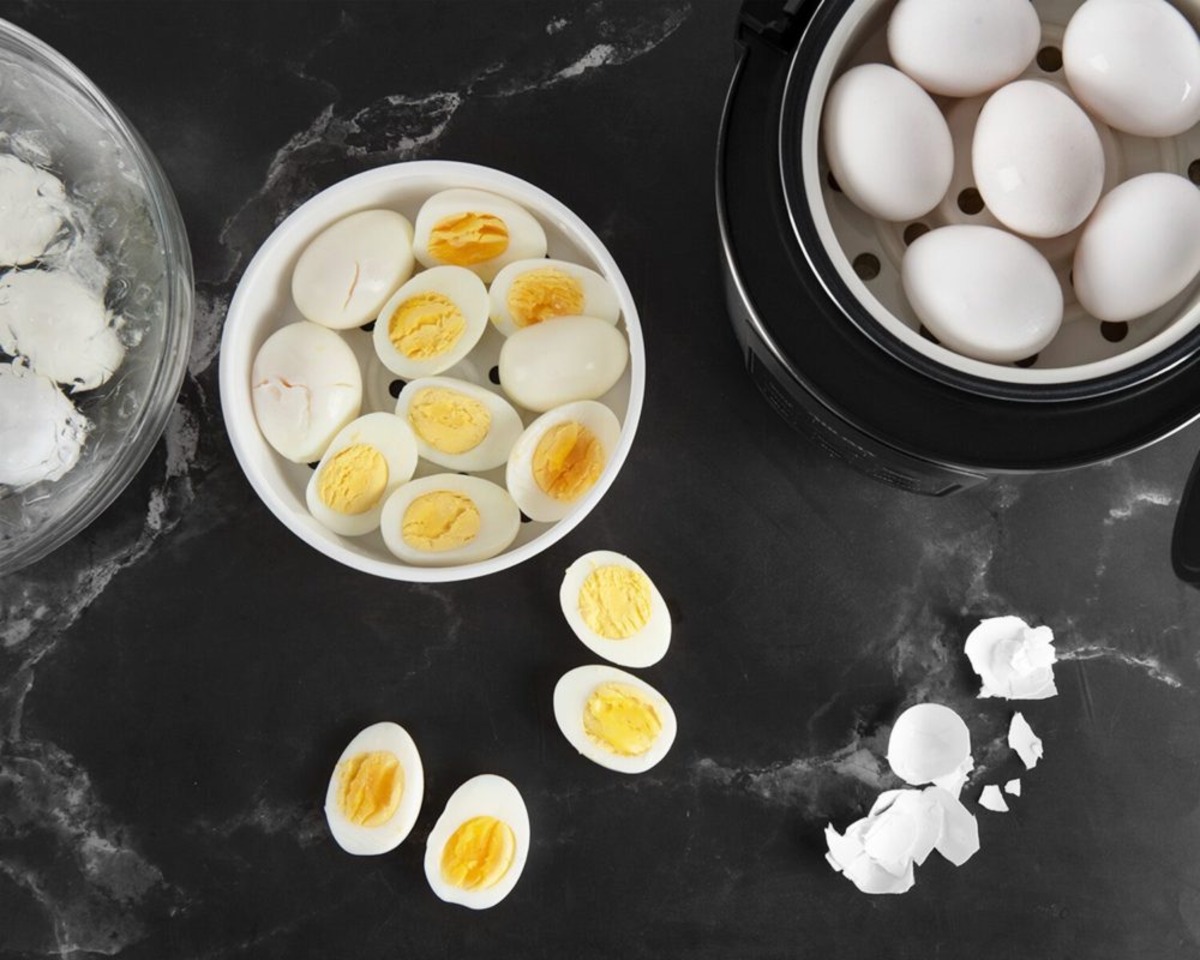

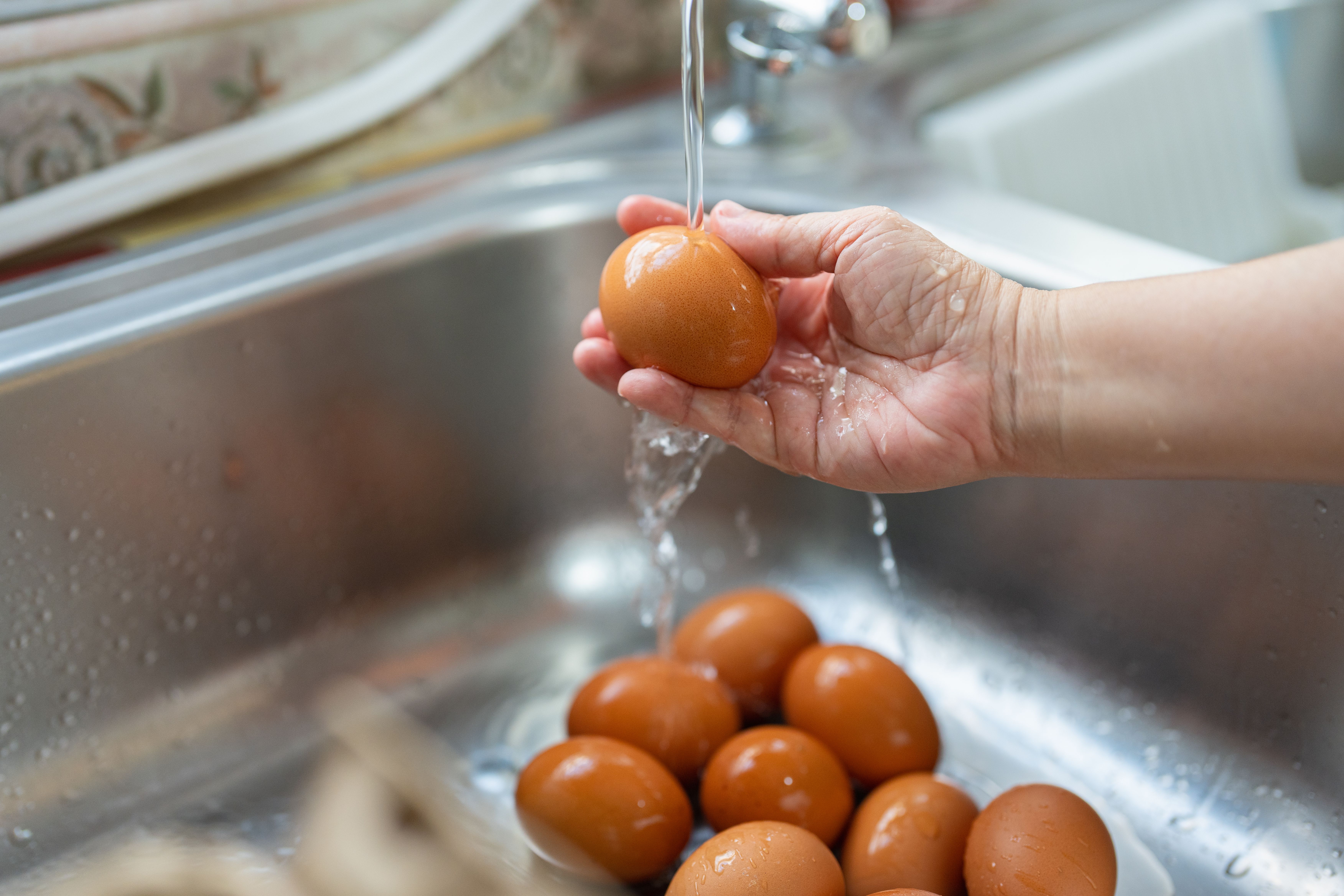

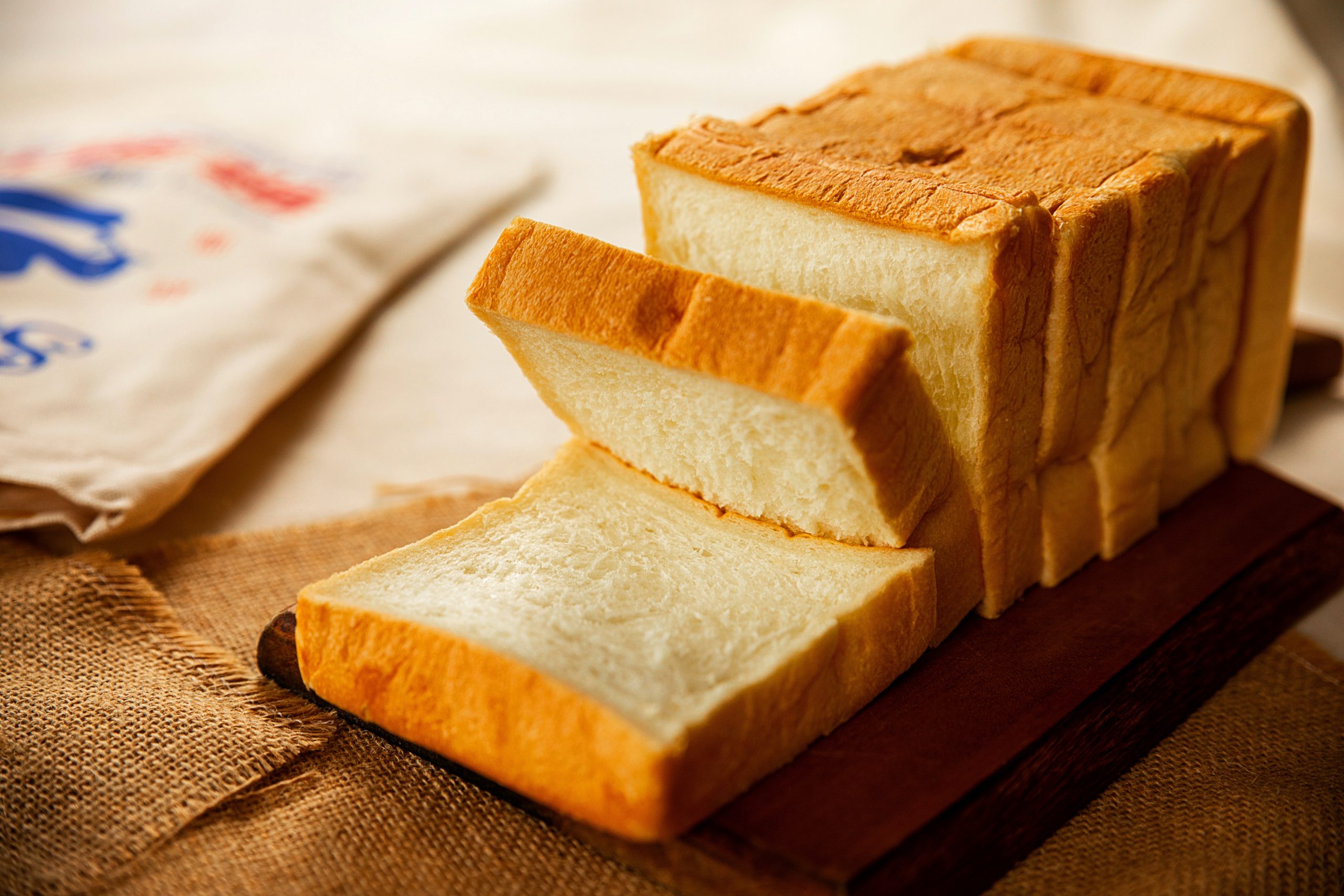

0 thoughts on “How Long Does Hard Boiled Eggs Last In The Refrigerator”